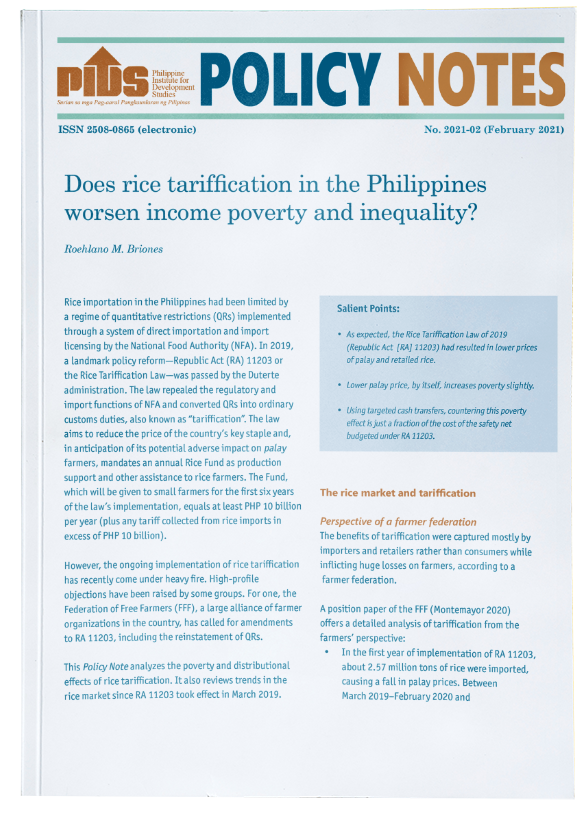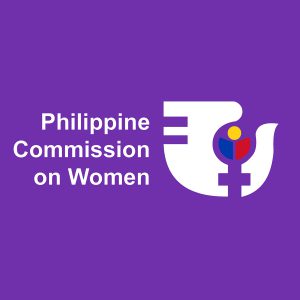
Passed in 2019, the Rice Tariffication Law (Republic Act 11203) aims to reduce the price of the country’s essential staples. It also mandates an annual Rice Fund to provide production support and other assistance to rice farmers in anticipation of the policy’s potential adverse impact. This Policy Note reviews recent trends in the rice market and assesses the effects of rice tariffication on poverty and income inequality using microsimulation. It finds that rice tariffication resulted in lower palay and retailed rice prices. Lower palay price, however, increases poverty but only slightly. To offset this poverty impact (estimated to be just a fraction of the safety net in RA 11203), the study recommends that targeted cash transfers be given to affected farmers. It also suggests that Rice Fund programs be evaluated to measure their impact on the rice industry at the grassroots level and determine whether the policy reform’s losers have been compensated adequately.
| Asset Type: | Publications |
| Collection: | Other Philippine Publications |
| Subject: | Rice Tarrification, Philippines, Poverty, Inequality |
| Author: | Roehlano M. Briones |
| Publisher: | Philippine Institutes for Development Studies |
| Publication Date: | February 2021 |

